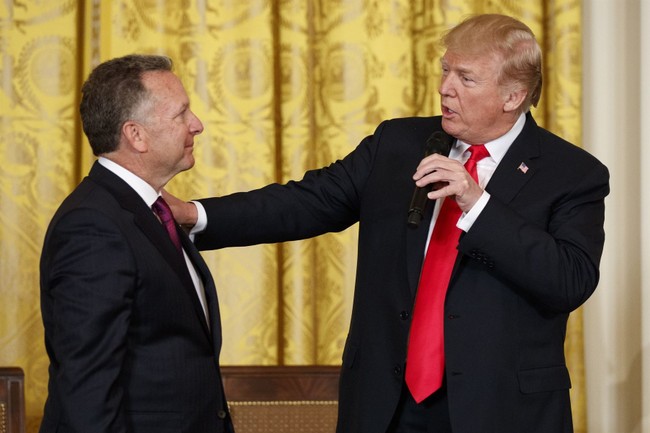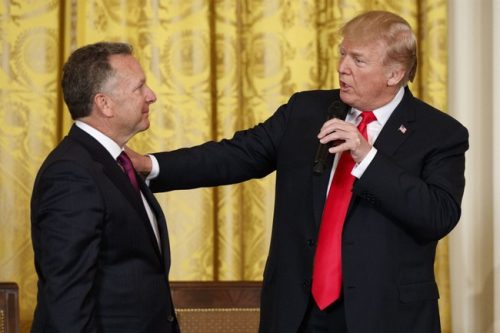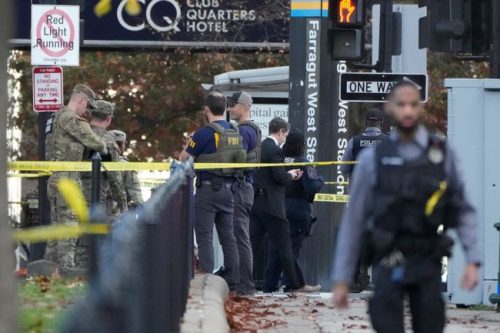Someone leaked Steve Witkoff’s messages with Russian officials, and the fallout is predictable.
Negotiations to end the Russia-Ukraine war are happening in the real world, and that means U.S. figures talk to Russian counterparts. A private chat between Special Envoy Steve Witkoff and a Kremlin aide leaked to the press, and some people act like the sky fell. This is not a new scandal; it’s the same playbook that keeps getting dusted off whenever diplomacy intersects with politics.
Talking to Moscow is not a crime, it’s part of the job when you’re trying to broker peace. Russia is a necessary participant in any settlement, so envoys will call their officials and test ideas. Exposing those back-and-forths to the public only undermines bargaining leverage and jeopardizes the work of peacemakers.
The headline is completely bullshit. If anyone actually reads this supposed “transcript,” they’ll realize there’s nothing wrong with what was said. In fact, it shows what a successful negotiator does in order to get a deal done. https://t.co/yN1onXbT1M
— Steven Cheung (@StevenCheung47) November 26, 2025
U.S. Special Envoy Steve Witkoff gave a senior Kremlin official tips on how to sell a Ukraine peace deal to President Donald Trump, a report said.
Witkoff spoke by phone to Russian President Vladimir Putin’s top foreign policy aide Yuri Ushakov on Oct. 14, advising him on how Putin should bring up the topic with the U.S. president, according to Bloomberg.
“We put a 20-point Trump plan together that was 20 points for peace, and I’m thinking maybe we do the same thing with you,” Witkoff was quoted by Bloomberg as saying, in reference to the Trump administration’s Gaza peace deal.
During the phone call, which lasted about five minutes, Witkoff said he had a deep respect for Putin and that he had informed Trump that he believed Russia has always wanted a peace deal for Ukraine, Bloomberg reported.
Witkoff mentioned that Ukrainian President Volodymyr Zelenskyy was visiting the White House in mid-October and that Putin could speak to Trump ahead of that meeting, the report added.
“Zelenskyy is coming to the White House on Friday,” Witkoff said, according to a recording of the phone call obtained by Bloomberg. “I will go to that because they want me there, but I think, if possible, we have the call with your boss before that Friday meeting.”
Witkoff suggested that Putin congratulate Trump on the Gaza peace deal and say that Russia backed it and that he respects Trump as a man of peace, Bloomberg reported.
Leaks like this are dangerous plain and simple, and anyone who pretends otherwise is playing politics over national security. When classified or sensitive diplomatic communications are dumped into the public square, adversaries learn how we negotiate and leverage that knowledge. The people responsible for these disclosures should face consequences under the law so officials can talk candidly in pursuit of peace.
There’s also the predictable media reaction: breathless headlines, petty outrage, and theater that tries to turn ordinary diplomacy into a political weapon. The press has made a career out of inflating routine foreign-policy activity into scandals, and too often they do so without regard for the real-world costs. This behavior discourages experienced hands from stepping forward to do the messy business of negotiation.
The content of the call, as reported, showed someone trying to create a bridge for diplomacy by proposing a framework modeled on a previous Trump-era peace effort. Suggesting timing and tone for a conversation between heads of state is not shocking; it’s how envoys try to open doors. The practical detail that the call lasted roughly five minutes and mentioned Zelenskyy’s White House visit underscores how tactical and time-sensitive these exchanges can be.
There’s a political spin cycle coming, and it will be noisy and partisan, but the facts matter more than the noise. A leak that reveals a private diplomatic strategy allows rivals and enemies to game the process and makes good-faith talks harder. Any serious government should prioritize the integrity of its communications over score-settling headlines.
Republicans should be clear-eyed here: defend the practice of diplomacy, hold leakers accountable, and resist the temptation to weaponize every conversation for immediate political gain. Protecting channels of communication is how you preserve the possibility of negotiated settlements and reduce the risk of escalation.
Politics will try to turn this into another round of culture-war theater, but the real test is whether leaders can keep doing the hard work of trying to stop wars. That work requires trust, confidentiality, and the willingness to speak off the record. Undermining those elements for a scoop or a gotcha is not just dumb politics, it’s a strategic mistake.






